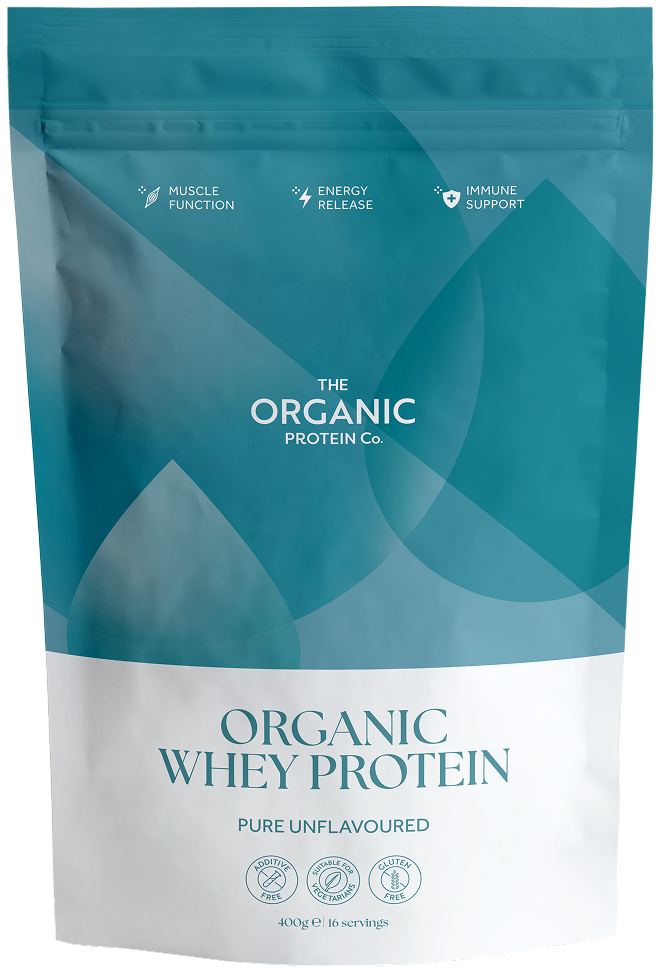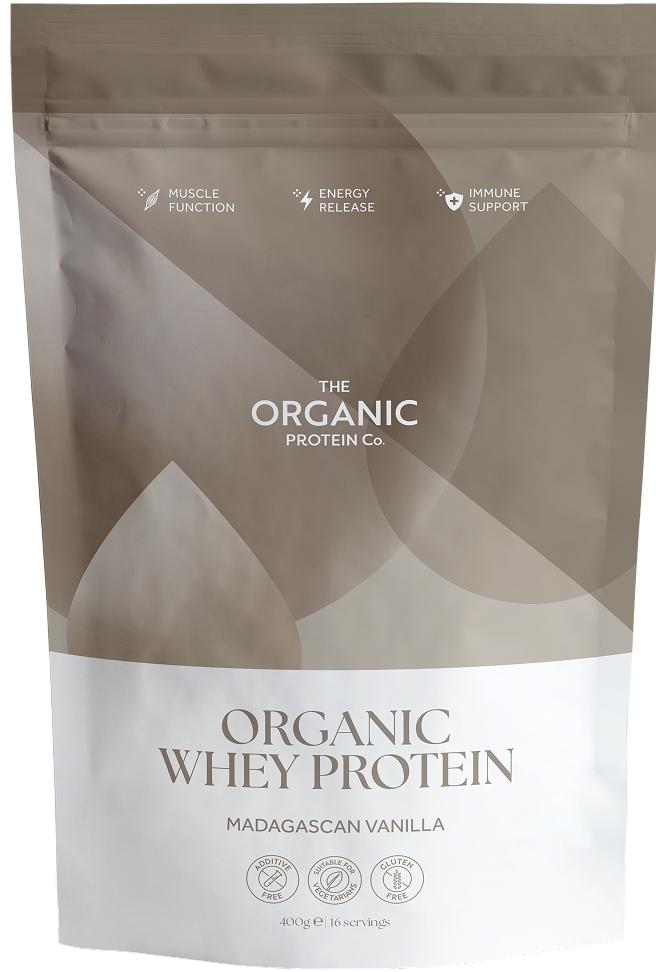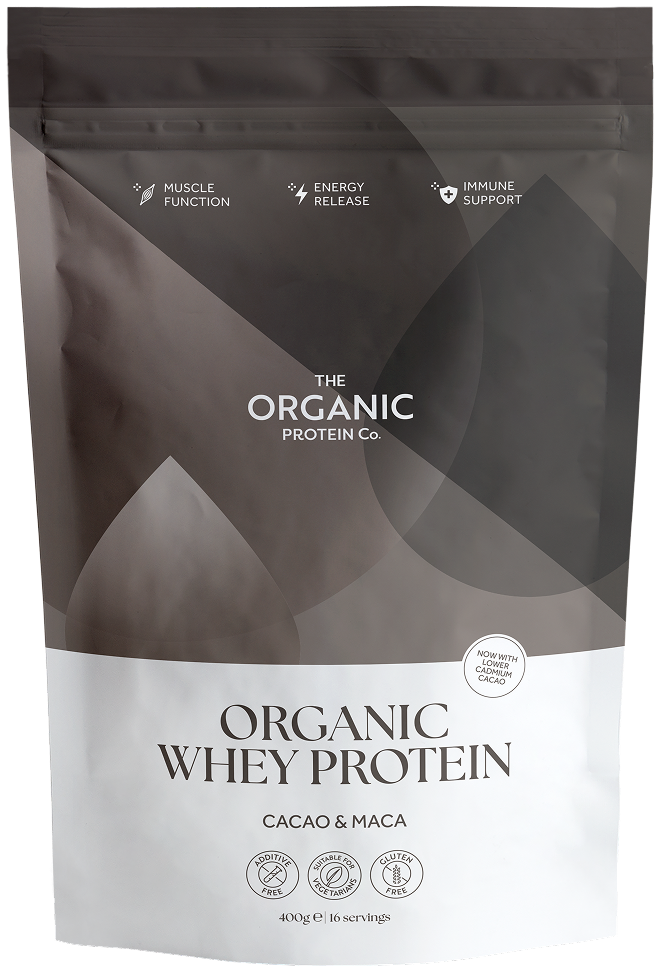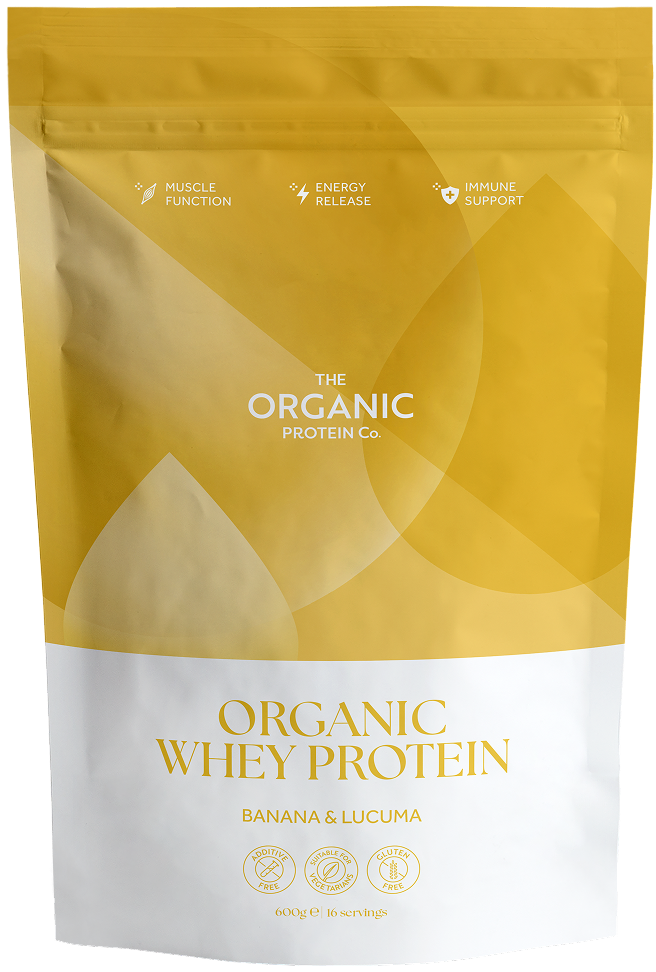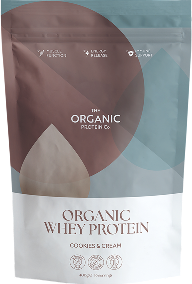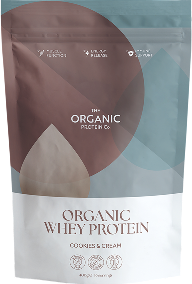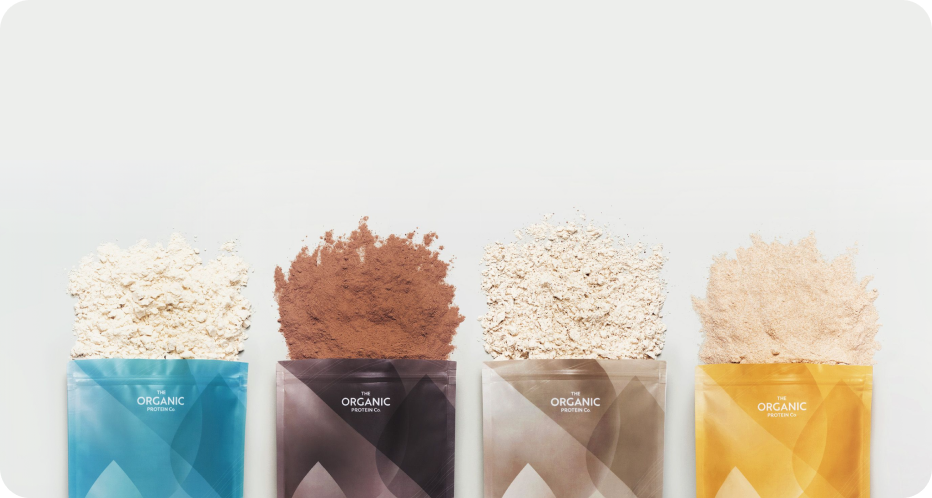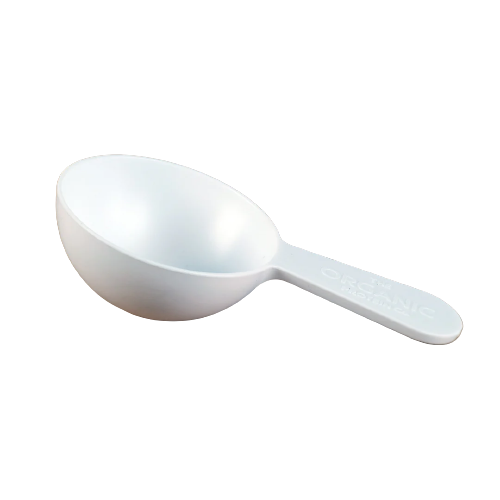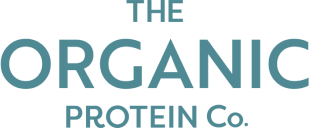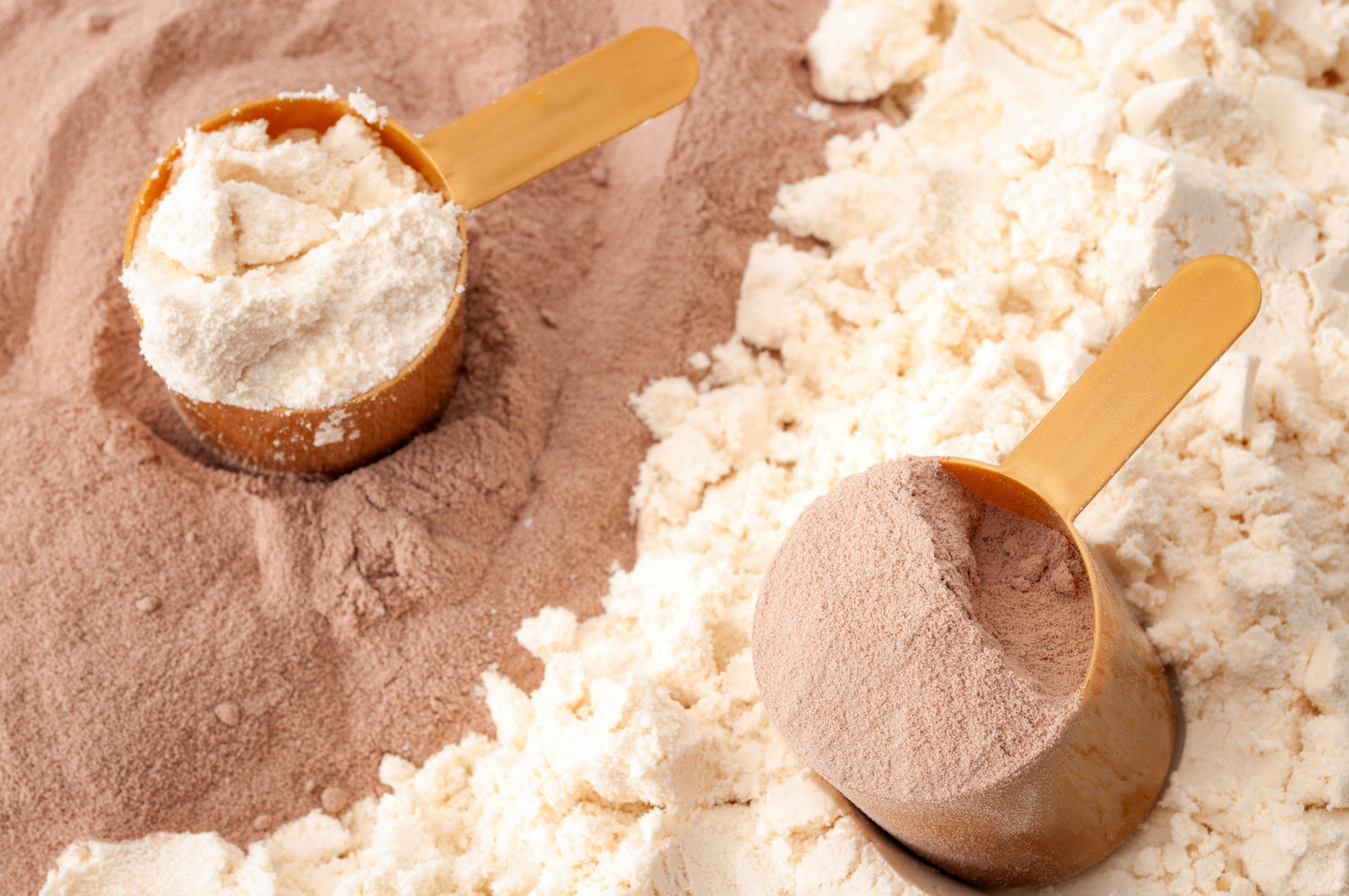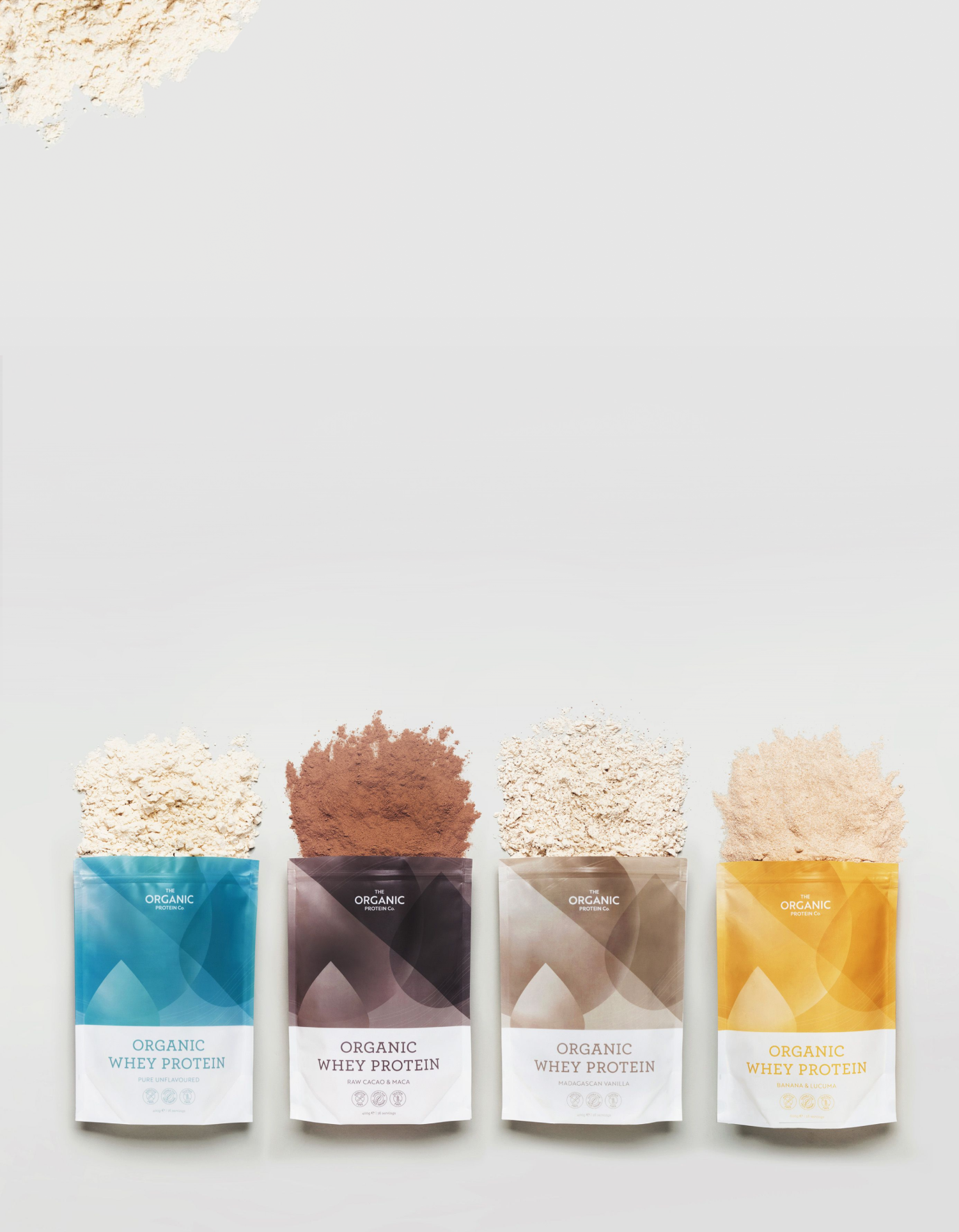Protein supplements have become part of daily life for many, helping us to maintain balanced diets and healthy, active lifestyles. Whey protein, in particular, is well-known and used widely for supporting muscles and overall health. (1,2)
But the not-so-new kid on the block is collagen protein. Though scientists have understood collagen protein’s role in the body for some time now, (3) its popularity as a supplement has only begun to grow in recent years. Today’s conversations often pit them against each other: collagen protein vs. whey protein – what’s the difference? Which is better – if any?
Below, we explore this topic in more detail to help you reach for the best protein powder to suit your needs.
What is collagen protein?
Collagen protein is a fibrous, structural protein found abundantly in mammals, making up 30% of all protein in the human body. (3) It’s a crucial component of bones, ligaments, tendons and muscles as well as playing a significant role in skin elasticity, joint health, and wound healing. (4,5,6)

Amino acid profile
Collagen contains 19 amino acids and 8 essential amino acids. (7,8) It’s lacking the essential amino acid tryptophan, which means it isn’t considered a ‘complete’ protein source. It is, however, particularly high in the below amino acids:
Collagen production and uses in the body
Collagen production naturally decreases with age, (11) which can affect skin elasticity and joint flexibility. Because of this, collagen has been a common ingredient in skincare products for many years, suggested to reduce wrinkles and the appearance of ageing. (12)
There are 28 types of collagen found in mammals, (13) with a variety of different roles, including some of the following:
Providing structure and strength to skin, bones, tendons, and ligaments
Maintaining elasticity and plumpness in the skin
Helping fibroblasts form in the dermis, aiding new cell growth and replacing dead skin cells
Making up the flexible cartilage that supports joints
Helping blood to clot
Providing a protective covering for organs
Where do collagen protein supplements come from?
With the increase in interest around collagen supplementation, there are various forms of collagen protein on the market for consumers. These typically include:
- Bovine collagen: Derived from the hides and connective tissues of cows, bovine collagen is rich in types I and III collagen. (14)
- Marine collagen: Sourced from fish scales and skin, marine collagen is primarily type I collagen. (15)
- Vegan collagen: As collagen can only be sourced from animals, vegan collagen is not ‘true collagen’ – instead, these supplements are formulated using genetically modified yeast or bacteria to produce collagen-like proteins. (16)
- Bone broth powder: Made by simmering animal bones to extract collagen, some research has shown that there may not be sufficient collagen in bone broths to have any benefits. (17)
- Collagen peptides: These are hydrolysed forms of collagen, meaning they are broken down into smaller, more easily absorbed peptides. Collagen peptides are versatile and can be added to various foods and drinks. (18)
What is whey protein?
Whey protein is a high-quality protein source derived from cow’s milk as a by-product of the cheese-making process. It’s the same protein found in human breast milk (19) and is renowned for its effectiveness in supporting muscle health and increasing overall protein intake. (1)

Amino acid profile
Whey protein is favoured for its unique amino acid profile. It’s rich in all 9 essential amino acids, as well as the following branched-chain amino acids:
Understanding the difference between collagen and whey protein
While the collagen vs. whey debate pits these two proteins against each other, the truth is that they each play unique roles in your body, and can help in differing ways when you want to up your protein intake. Take a look at the below for a clearer picture of how the two types of protein compare with each other:
Amino acids
- Collagen: Collagen protein contains 19 amino acids and is particularly high in glycine, proline and hydroxyproline. These amino acids are particularly beneficial for skin health, joint repair and overall tissue regeneration, but collagen lacks the essential amino acid tryptophan, which means it’s not a complete protein. (13)
- Whey: Whey protein is a complete protein, containing all 9 essential amino acids, including high levels of BCAAs (leucine, isoleucine and valine). This means that it can be used in the body to support a variety of functions, from muscle support to immune support. (25)
Absorption rates
- Collagen: Typically available in hydrolysed form, collagen is broken down into smaller proteins called peptides. This makes it easier for the body to absorb and utilise them. (18)
- Whey: Whey protein is known as one of the fastest-absorbing proteins for the body and research has shown that we can generally digest around 10g an hour, meaning it would take around 2 hours to digest and absorb a 20g serving of whey protein powder. (26)

The health benefits of collagen protein
As the body’s most abundant protein, it’s no surprise that collagen plays a vital role in our overall health. Here’s how collagen protein supports our bodies and any research carried out to understand if supplementing collagen in your diet can help.
Skin health
The first, and perhaps most well-known role of collagen in the body, is skin elasticity and hydration. In fact, you might think of skincare and beauty products which promote collagen as one of their key ingredients. (27)
As we age, collagen production decreases (28), leading to wrinkles and less plump skin. Supplementing with collagen protein may help improve skin elasticity and hydration. (29)
Joint health
Collagen is a major component of cartilage, the tissue that cushions joints. Supplementing with collagen may help reduce joint pain and improve joint function, particularly in individuals with osteoarthritis. (30)
Wound healing
Collagen’s role in wound healing is also well-researched and understood. (31) It helps to promote new tissue growth and therefore aids in the repair of wounds and injuries. This is partly because it is high in the amino acids glycine and proline, which reduce inflammation and encourage tissue regeneration. (9,32)

The health benefits of whey protein
Whey protein is a versatile supplement known for supporting muscle health and increasing overall protein intake. Its complete amino acid profile and rapid absorption make it a popular choice for maintaining muscle mass and general health – find out more below.
Muscle health
Whey protein is rich in leucine, a branched-chain amino acid that plays a key role in supporting muscles. (33) This is essential for maintaining muscle tissue, particularly as we age or engage in regular physical activity. Regular whey protein intake can help support muscle health and ensure your muscles receive the nutrients they need.
Overall protein intake
Being a complete source of all 9 essential amino acids, whey is an excellent way to boost overall protein intake, especially for individuals who may struggle to consume enough protein through diet alone, such as vegetarians. Ensuring adequate protein intake is crucial for maintaining muscle mass, supporting metabolic health and promoting satiety. (34,35,36)
Bioactive compounds
As well as supporting your muscles, whey protein is full of what are known as bioactive compounds or protein fractions. These are Alpha Lactalbumin, Beta Lactoglobulin, Immunoglobulin G (IgG), and Lactoferrin. Each of these protein compounds has been studied for its role in supporting our immune system, from the prebiotic and antibacterial properties of Alpha Lactalbumin (37) to Immunoglobulin’s role as the most common antibody in our blood. (38)
Collagen or whey protein: how to choose
There’s no reason why you have to choose one or the other when it comes to whey and collagen protein powders. Both are unique and beneficial for your body in your own way. Nevertheless, consider the below to make sure you make the right choice for you when buying your next protein powder:
- Health goals: Consider what health goals you’re aiming to achieve. If it’s an all-round increase in protein intake, whey protein powder might be best for you. If you’re interested in improving your skin, joints, or hair in particular, you may prefer a collagen protein powder.
- Dietary preferences: Those who are lactose intolerant or who have a dairy allergy can sometimes struggle to digest whey protein, though the lactose content is generally quite low. You might find collagen is easier to digest – alternatively, if you’re lactose intolerant, taking a lactase enzyme can help you digest whey with more ease.
- Healthy protein intake: If you do choose to try both collagen and whey protein powders, it’s important to be aware of your protein intake. Exceeding recommendations can have adverse health effects, (39) so always speak with a doctor or dietitian to get their advice on how much you should be consuming and how – including whole food sources.

Choose the best protein powder to fuel your body
Whether you’re aiming to boost your overall protein intake or focus on skin and joint health, both collagen and whey protein have their unique perks. By understanding their differences, you can choose the one that best supports your lifestyle and optimal wellbeing.

